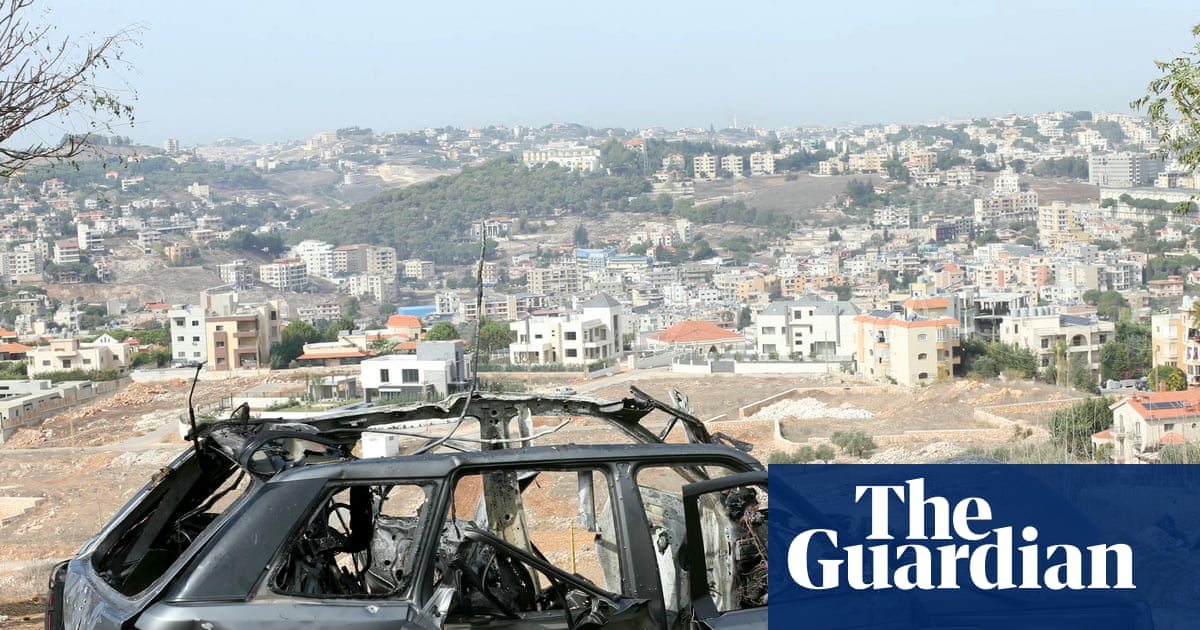A key emergency official was sick and asleep for most of the day before devastating flash flooding swept through Texas hill country and killed more than 130 people over the Fourth of July weekend.
Kerr county’s emergency management coordinator, William B Thomas, had not spoken publicly since the floods, one of the state’s worst ever natural disasters. Questions have swirled about his absence and the lack of sufficient warnings to residents about the impending storm before the Guadalupe river surged to record levels in the early hours of 4 July.
Thomas told a hearing held by state lawmakers in Kerrville on Thursday he wanted to address questions about his whereabouts. He said he had previously planned to be off work on 3 July “to fulfill a commitment to my elderly father”. Due to a “progressing illness”, he had stayed at home. He said his supervisor was aware he was off.
“I stayed in bed throughout 3 July and did not participate in the regularly scheduled 10am and 3pm Texas emergency management coordination center coordination calls,” Thomas told the hearing, which was attended by hundreds of Kerr county residents.
In those two calls, the forecast severe weather for the holiday weekend was discussed. At that time, it was not clear where in the region would experience the most rainfall.
The Kerr county sheriff, Larry Leitha, and Thomas acknowledged being asleep as a crisis was unfolding, while it was confirmed that Judge Rob Kelly, the county’s top executive, was out of town on Fourth of July, revealing a lack of on-duty leadership in the key initial moments as the crisis was unfolding.
The catastrophic flooding killed at least 138 people, including 27 campers and counsellors at the all-girl Camp Mystic.
Thomas testified that after sleeping through most of 3 July, he awoke briefly at about 2pm, when he said there was no indication of local rainfall. He then went back to sleep again until his wife woke him up at 5.30am on 4 July, by which point the worst of the flooding had already surged through low-lying communities in the area, including Hunt, where Camp Mystic is located, and emergency rescue operations were already under way.
Thomas also said more alerts from the county would have been duplicative since the National Weather Service had already triggered several alerts as the water rose, and that those seemed sufficient.
But many residents and survivors have protested that they had “no warning at all, none whatsoever” of the torrential rain that was heading for the flood-prone region until it was too late, and have called for outdoor weather sirens to be implemented in the county.
Indeed, in other testimony, local officials said they needed but lacked an updated warning system, when flash flooding swept away homes and vehicles and left families stranded on the roofs of their homes.
At the hearing, Kerrville’s mayor, Joe Herring, called for a flood warning system, potentially including sirens, to be designed and installed before next summer, and asked the state lawmakers for assistance.
“We need stronger communications and better broadband so we can communicate better,” Kelly said, adding that poor cell service did not help those along the river. “What we experienced on July 4 was sudden, violent and overwhelming.”
But some, including Leitha, doubted that an improved warning system with sirens would have changed the outcome. “The water came too fast,” he said.
Associated Press contributed reporting

 3 months ago
44
3 months ago
44

















































